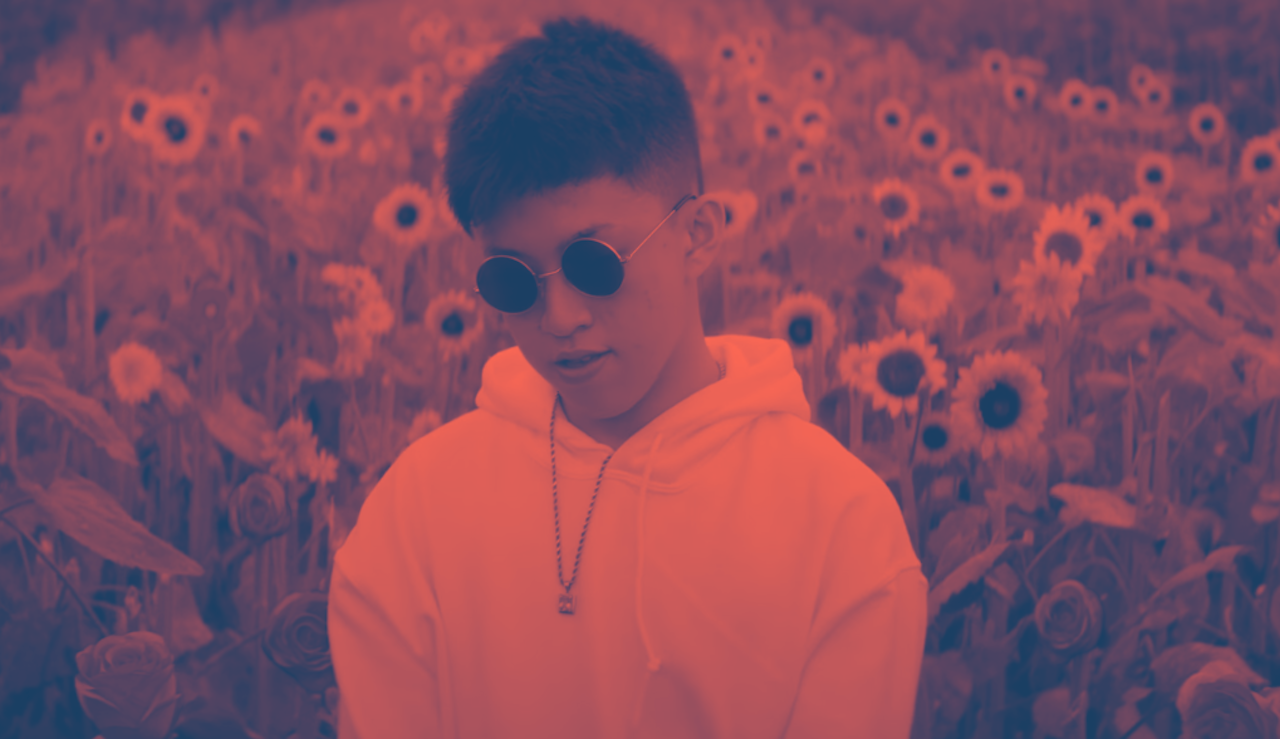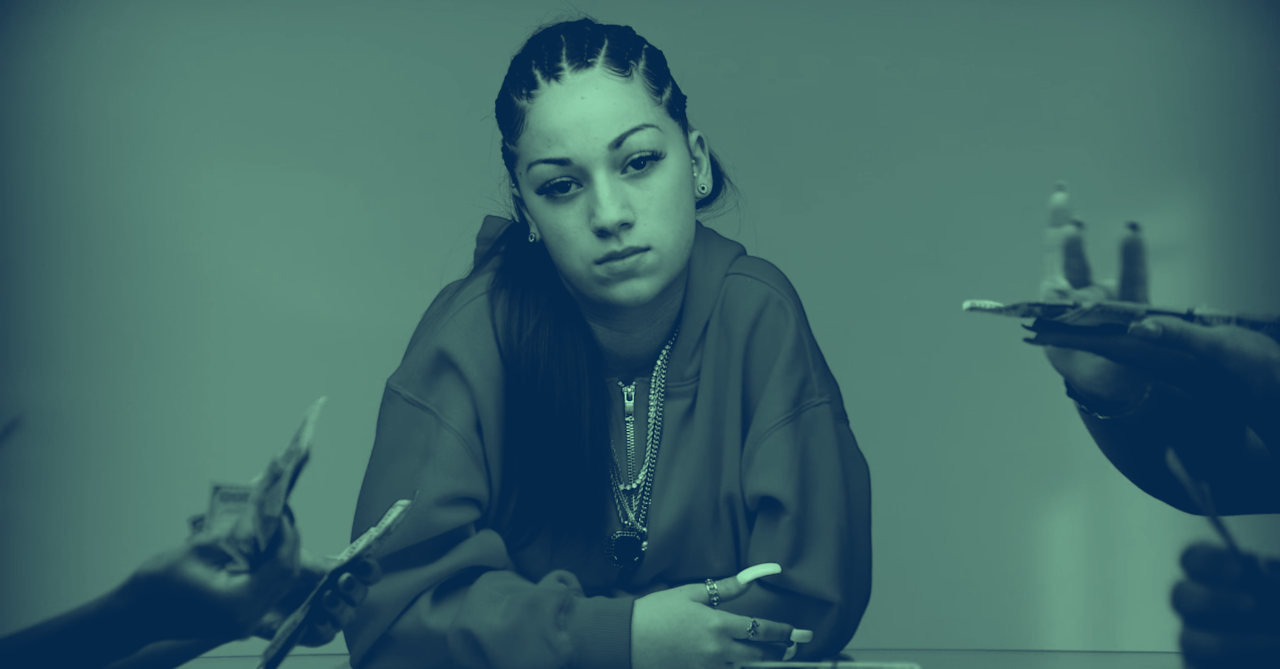“I’m a one and only, but I swear about a thousand Indonesian kids will come with me,” Rich Brian raps on his debut album Amen, positioning himself as a very rare figure: the Asian rap pioneer. Jakarta isn’t known for its rap culture, and much of Amen sounds cribbed from the more popular rappers he absorbed as a teenager. (He says the first rap song he heard was Macklemore’s “Thrift Shop,” which is also how he started to learn English.) On Amen, Rich Brian talks about standard teen fare like his crushes, sex, and partying with his friends; he also mixes in staples of hit trap songs, talking about thick girls he’d like to sleep with, bragging about his lyrical skill, and dropping go-to ad libs like “ayy” and “skrrt.” There are references to his life in Jakarta, his growing success, the prospect of financially supporting his mother. It’s a 44-minute record of his rapidly changing life.
There is not, however, a lot of talk about race and cultural appropriation, which is notable considering the building blocks of his career. Like many, my first introduction to Rich Brian was through the 2016 viral video for his song “Dat $tick,” in which the then-16-year-old and his friends wave guns, pour out liquor, and dab while wearing khaki shorts and polo shirts. It’s not a terrible song, and the video, which the rapper directed himself, was generally well-done. But there was a sour feeling to the whole thing, for a very obvious reason: Rich Brian was then going by Rich Chigga — a portmanteau of Chinese and the slur “nigger,” in case you didn’t get that — and the video came off like a winking parody of American hip-hop videos.
The rapper, whose real name is Brian Imanuel, was following in the tired American tradition of ironic co-optation of hip hop culture. It’s a tradition that includes twee indie rock covers of popular rap songs, like Ben Folds’s unfortunate version of “Bitches Ain’t Shit” or Karmin’s entire existence, or musicians like Lil Dicky, the white rapper who, like Brian, came to fame after the release of a viral video, 2013's “Ex Boyfriend.” (I found out about Dicky two years later when he released the music video for “Save That Money,” which features him code-switching like his life depends on it. One second he is performing whiteness to curry favors from wealthy people and the next he is performing blackness, using those favors as a backdrop to his rapper persona. It’s annoying for reasons he likely didn’t intend.)
Rich Chigga wasn’t exactly like them, however, because Rich Chigga — now Rich Brian — isn’t white. He is an Asian teenage boy who had never even been to the United States until after he caught the country’s attention — and his music wasn’t bad. In a smart PR move, his management company released a video of popular rappers reacting to it, with all looking entertained and many praising his skill. Still, there was nothing impressive enough about him to convince me to push past the cringiness of the Rich Chigga name and persona.
On New Years Day, the unexpected happened. In a move that spoke to the mindlessness of his original name as well as his earnestness, Imanuel apologized for his original name and debuted his new title ahead of the release of Amen. “I have been planning to do this forever and I’m so happy to finally do it. I was naive & I made a mistake,” he wrote in an Instagram post announcing the change. On Amen you can hear a lyrical effort to stay in his lane and speak to his own experiences. He doesn’t rap any racial slurs, like he did on “Dat $tick.” But there’s still something discomfiting there, even with the name change, the apology, and the empathy that comes with knowing we all did dumb things (and didn’t understand the nuances of race in America as well) when we were young.
Often coverage of Rich Brian has cited his talent as a rapper as the reason audiences continue to be intrigued with him. He has co-signs from hip hop’s new guard like the Migos’s Offset, who features on the Amen song “Attention.” The effort to revamp him into a more serious artist might have something to do with the fact that mainstream Asian rappers are, in general, pretty rare. The last time one got widespread attention in the US was in 2010 when Far East Movement’s “Like a G6” topped the Billboard charts. At the height of their fame, Far East Movement adeptly navigated accusations of cultural appropriation, managing to become symbolic for some of the music industry’s increasing diversity. That symbolism fell short, however, as mainstream attention never quite spilled over to other Asian-American hip hop artists like Dumbfoundead and Awkwafina.
Nor has that attention resulted in more overseas acts breaking into the U.S. mainstream. For example, Keith Ape, a product of South Korea’s own flourishing hip hop scene, courted American audiences with the remix of his hit “It G Ma” featuring American rappers A$AP Ferg, Father, Dumbfoundead, and Waka Flocka Flame. Ape too was held to task for cultural appropriation, particularly when audiences became aware that “It G Ma” was remarkably similar to Atlanta rapper OG Maco’s 2014 song “U Guessed It.” In an interview with FADER, Maco called “It G Ma” “blackface.” Still, despite the conversation and publicity it drummed up, the viral hit didn’t translate into comparable interest in the rest of Keith Ape’s work. As of last year he was still trying to recreate that buzz.
Rich Brian might fare better, and surpass his original sin of going viral off a racial joke. And if it seems a little harsh to continually hold a teenager accountable for his actions, it’s worth a reminder that no artist deserves a career — and that it would be fairly unoriginal if Rich Brian, given an opportunity to engage with more thoughtful themes in his art, instead sticks to the usual sex and partying tropes his young fans undoubtedly connect with. It may feel like an imprecise guessing game to consider how much of this audience is hooked by the implicit anti-blackness of a dorky-looking Asian kid reifying rap tropes — as well as the implicit anti-Asianness in this, too — but it’s fairly naive to insist his success is wholly attributable to his rapping talent. And if he wants to make it in America, he had better figure out how to talk about race — the one thing every non-black rapper must reckon with — sooner rather than later.

